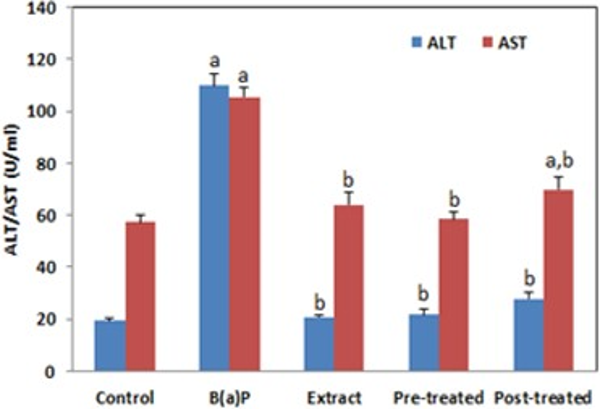Abstract
Lung cancer is one of the most lethal cancers which is causing up to 3 million deaths annually worldwide. Therefore, management of lung cancer needs searching for new chemopreventive agents. This work was designed to inspect the chemopreventive potential of different extracts prepared from branches and leaves of Synadenium grantii for screening their effects on lung cancer cells (A549), then the most active extract was used for combating lung cancer induced in animal model. The in vitro results showed that, the methanolic extract was the most active extract against A549 cells with a notable cytotoxicity activity (IC50: 4.30 ± 0.44 µg/ml), which was close to the activity of standard drug, doxorubicin (IC50: 3.50 ± 0.40 µg/ml). The results of the in vivo experiment, revealed that in B(a)P-treated group, aspartate (AST) and alanine (ALT) transaminase activities as well as the levels of urea, creatinine, alpha-fetoprotein (AFP) and Phosphotylinosital 3 Kinase (PI3K) were significantly increased comparing to control group. However, treatment with S. grantii ameliorated the increase in these parameters in both after and before treatment groups comparing with B(a)P-treated group. This improvement in biochemical results were also supported by improving in morphological and histopathological injuries induced by B(a)P, which indicated that methanolic extract of S. grantii has a chemoprevention effect on lung cancer.
Full text article
Authors

This work is licensed under a Creative Commons Attribution-NonCommercial-NoDerivatives 4.0 International License.

